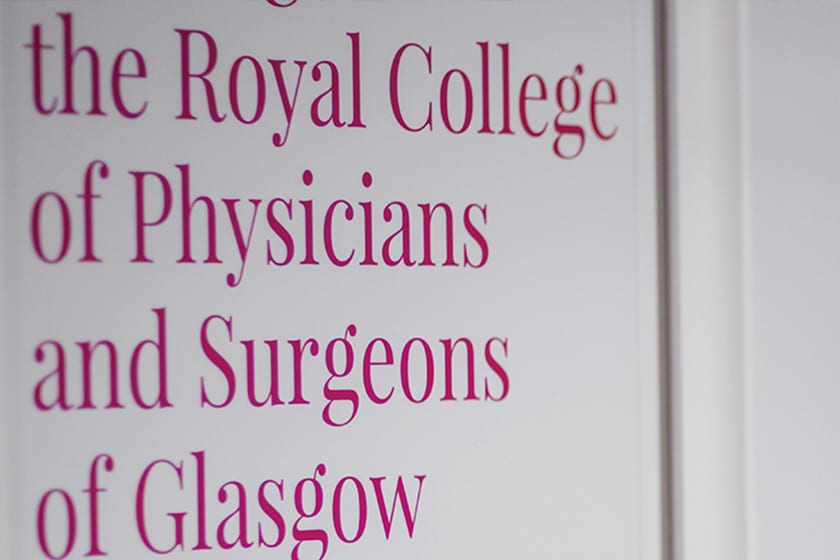More needs to be done to prevent maternal deaths leading doctors say
23 Mar 2015
Acting Deputy Chief Medical Officer for Scotland and leading doctors from the Royal College of Physicians and Surgeons of Glasgow and the Royal College of Physicians of Edinburgh have called for improvements in care for pregnant women and new mothers

.
Acting Deputy Chief Medical Officer for Scotland and leading doctors from the Royal College of Physicians and Surgeons of Glasgow and the Royal College of Physicians of Edinburgh have called for improvements in care for pregnant women and new mothers.
Leading experts in obstetrics and other medical disciplines recently met at the Royal College of Physicians and Surgeons of Glasgow to discuss strategies for reducing the incidence of maternal death.
The recommendations put forward following the meeting are:
- Better strategies for the prevention of ill health in pregnant women (such as flu vaccination and lifestyle advice)
- Better education programmes for patients with medical and mental health issues who are planning pregnancy or who are pregnant
- Careful assessment of pregnant and post partum women who feel unwell, especially if their symptoms fail to settle
- Pregnant and post partum women who arrive at hospital complaining of ill health should be "red flagged" and assessed by consultants in both medicine and obstetrics before discharge
- Health professionals must have a low threshold for seeking expert help for pregnant and post partum women, whether it be in regard to their symptoms, investigations of their medicine, or other aspects of their care
Ten in every 100,000 pregnancies in the UK and Ireland results in the death of the mother. A report into maternity care in the UK and Ireland, published in December 2014, found that one third of these deaths (32%) were a direct consequence of pregnancy (obstetric) complications such as pre-eclampsia or bleeding. The remaining two thirds (68%) of deaths were the result of medical and mental health problems, including infections, suicide and flu, during or soon after their pregnancy. Three quarters of those who died had a history of medical or mental ill health.
In the last decade, the number of women dying from complications directly associated with pregnancy (i.e. obstetric complications) has almost halved from a peak of 6.24 per 100,000 in 2003-2005 to 3.49 per 100,000 in 2009-2011. In contrast, the number of women who die following medical or mental health problems has not seen any significant decrease in the past 10 years (7.76 per 100,000 in 2000-2002, compared to 7.15 per 100,000 in 2009-2011).
The findings suggest that when a pregnant woman or a woman who has recently given birth presents to hospital or their GP with symptoms of illness, too frequently these symptoms are attributed to the pregnancy or the delivery. This assumption is often the basis for substandard care and tragic outcomes. There is now an urgent need to implement new recommendations to ensure that any pregnant or post partum woman presenting at hospital is not discharged without thorough investigation of her symptoms.
Acting Deputy Chief Medical Officer for Scotland, Dr Catherine Calderwood said, "While maternal deaths are very rare, the effects it has on a family are tragic. It is encouraging to see that the number of cases is continuing to decrease. However, we must continue to drive improvements to reduce the rate even further. I welcome both the suggestion that collaboration across health services is key to improving care and outcomes for pregnant women, and the proposal for a position statement from the Royal College of Physicians and Surgeons of Glasgow as a positive step in improving patient safety."
Dr Frank Dunn, President of the Royal College of Physicians and Surgeons of Glasgow said, "The death of a woman during pregnancy or in the weeks after giving birth is a tragedy that has major implications in so many areas, not least in the impact on her newborn child.
"We must learn from the findings of this report and focus immediately on reducing the impact of pre-existing medical and mental health issues on pregnant women, both during their pregnancy and in the weeks after giving birth.
"We arranged this meeting in partnership with the Acting Deputy Chief Medical Officer for Scotland, Dr Catherine Calderwood, and the Royal College of Physicians of Edinburgh to bring together experts in obstetrics and other medical disciplines to produce recommendations and actions to reduce the incidence of maternal death, which I believe is currently too high. The issue is a complex one and the solution will demand collaboration over many sectors of the health service."
It is hoped that the implementation of a position statement from this meeting will result in clear cut measurable health improvements in this vulnerable group of patients.
The full report can be accessed here: https://www.npeu.ox.ac.uk/mbrrace-uk/reports
Latest news and statements
Key priority areas
Topics
- Workforce
- Wellbeing
- Equality, Diversity and Inclusion
- Climate Change
- Health Inequalities
- College
- Obesity
- COVID-19
Archive
Key links
Tweets by @rcpsglasgow